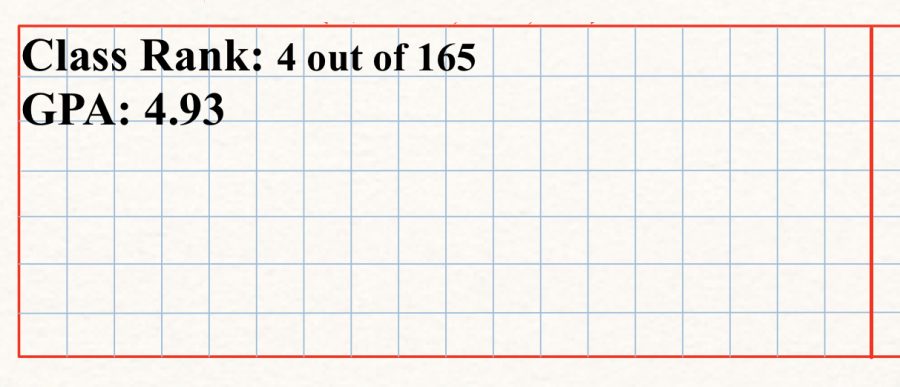Class rank is holding us back
March 29, 2023
From the first day of freshman year until graduation, every student at Saucon Valley is pitted against their classmates. Every fragment of a point on every test matters. It can be the difference between valedictorian and salutatorian. It can be the one thing holding you back from writing “top 10%” on your college applications. The closest of friends can find themselves competing to see who does better in their classes. The obsession with their rank can hold them hostage in their academics.
In order to get a fair perspective for this article, I interviewed four of the highest achieving students in the junior class. All of them were against class rank despite GPA’s over 4.5 and guaranteed top 10% placement.
Isabella Johnstone, a junior ranked fifth in the class, said she was against class rank because “It puts students’ in places of taking AP and honors classes for the purpose of boosting their GPA, rather than actually wanting to challenge themselves or that they are interested in the content. Ranking students by their academic ability is by no means a reflection of the student themselves, and I believe that students should not have the availability to see their ranking.”
Students would rather take AP Calculus, despite wanting to be a writer, than creative writing, because it will boost their GPA. High school is intended to be a period of growth and development and has become a meaningless statistical stepping stone. Students often study to do well on a test, but find themselves working less on retaining material for the sake of learning.
Junior Karoun Goudsouzian agrees. “If class rank wasn’t considered by colleges, I would focus more on myself than academics and actually do my best to understand everything that is being taught.” Students work for every fraction of a point to look their best, instead of working to really learn.
Holding students above others down to tenths of a grade point is a toxic practice that isn’t beneficial to 90% of the class. “It’s very competitive. By the time I graduate I’ll have a high 4.7 or low 4.8 GPA which will land me just inside the top 10, while last year, the salutatorian had a low 4.8,” Lincoln Alicea, a junior who is ninth in the class, shared.
In an attempt to feel secure in a high ranking, students sacrifice their social and extracurricular activities to focus on academics. Victoria Youngkins, another highly ranked junior, wishes she could go back and advise her freshman self not to do this. “If I could go back to freshman year, I would try to be easier on myself in terms of grades. I think I focused too much on achieving perfection freshman year, and neglected other aspects of my life such as taking time with family and friends. I was not involved in sports or many extracurriculars my freshmen year because I made school my entire life.”
Not to mention the severe impact that this kind of constant pressure has on mental health. Youngkins also shared that “Although unhealthy, academic success is a source of self validation for myself, so I put a lot of pressure on myself to strive for perfection. When taking each test, there is always a thought in the back of my head of how this one grade will impact my GPA. Overall, the margin of error involved in achieving high grades makes it nearly impossible to make mistakes, take a “rest day”, or take time for myself, which ultimately has a huge impact on my mental health.”
Such high achieving students don’t deserve this level of turmoil to maintain their rank. The competitive and toxic environment has no benefits. It fosters fear as a motivator. Inflicting stress on teenagers like this results in burn out and issues with self worth.
Class rank causes more harm than good. The students who get the highest grades are crushed with stress, and the students who don’t make the cut feel inferior, when they aren’t. It prioritizes numbers over people, and it shouldn’t be used at Saucon.


